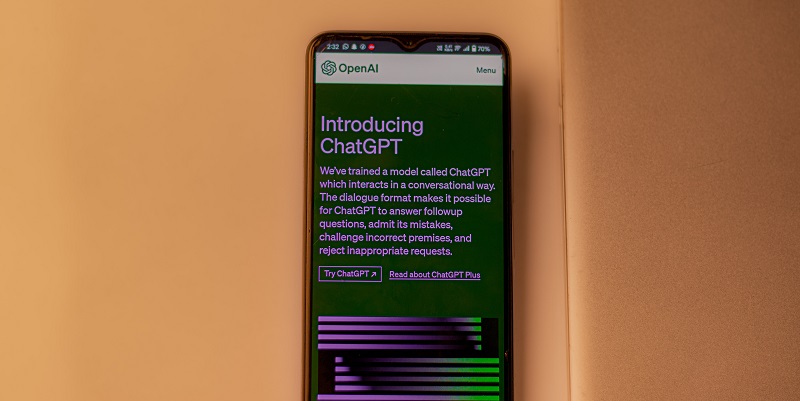In an era dominated by advanced technology, artificial intelligence (AI) stands at the forefront of innovation. However, recent revelations have raised alarming concerns about the lack of emphasis on security within the field. As data scientists train complex AI models, security is often an afterthought, resulting in potential vulnerabilities that have far-reaching consequences.
Limitations of Current AI Models
Academic and corporate research has shed light on the glaring inadequacies of current AI models. These models are often unwieldy, lacking the robustness required to withstand real-world challenges. Their brittleness renders them susceptible to exploitation and manipulation, potentially compromising sensitive data and information.
Findings from academic and corporate research
Extensive studies have unveiled the limitations of existing AI models, revealing the urgent need for enhanced security measures. These studies illustrate the vulnerabilities within AI frameworks, urging developers and industry leaders to address these shortcomings promptly.
Issues with publicly released chatbots
The generative AI industry, buoyed by its recent advancements, has faced repeated security breaches highlighted by diligent researchers and inquisitive tinkerers. Publicly released chatbots, once hailed as technological marvels, have become inadvertent gateways for security vulnerabilities, leading to unauthorized access and potential data breaches.
Frequently Exposed Security Vulnerabilities
The inherent flaws in generative AI have given rise to a constant struggle to patch security holes. Researchers, through their rigorous efforts, have discovered countless vulnerabilities that have exposed the fragility of AI systems. These findings underscore the urgent need for strengthened security protocols to protect both user privacy and critical infrastructure.
Declining reporting of serious hacks
While serious hacks were once regularly reported, the landscape has shifted, and information regarding such incidents is now rarely disclosed. This lack of transparency leaves individuals and organizations unaware of the magnitude of the cybersecurity threat posed by AI systems. Urgent action is required to ensure proper accountability and awareness.
Implications of underreporting
The consequences of underreporting cyberattacks on AI systems are severe. Unaddressed vulnerabilities allow malicious actors to exploit these weaknesses and conduct covert operations, endangering critical infrastructure, financial systems, and public safety. It is imperative for AI industry stakeholders to reverse the trend of underreporting and adopt a proactive approach to cybersecurity.
Impact of Manipulating Training Data
Researchers have found that even altering a small portion of the vast data used to train AI systems can wreak havoc. Malicious actors can surreptitiously poison this data, introducing biases, misinformation, or malicious code, which can propagate throughout the AI model. Inadequate safeguards and oversight make it easier to overlook these vulnerabilities, rendering AI systems susceptible to manipulation.
Unnoticed Vulnerabilities and Their Havoc
The potential consequences of overlooking vulnerabilities within AI systems are far-reaching. Exploiting these unaddressed weaknesses allows hackers to compromise critical infrastructures such as healthcare systems, autonomous vehicles, or financial institutions. The massive scale of AI deployment amplifies the destructive potential, necessitating a robust security framework.
Prioritizing Security and Safety
Recognizing the urgency of the situation, major AI companies have declared security and safety as top priorities. In a significant step towards transparency, these industry giants have made voluntary commitments to submit their closely guarded, opaque AI models to external scrutiny. Such initiatives aim to promote accountability, identify vulnerabilities, and establish a safer AI ecosystem.
Exploitation of AI Weaknesses
As AI systems permeate search engines and social media platforms, the risk of exploitation for financial gain and disinformation grows exponentially. Threat actors can manipulate AI vulnerabilities to disseminate false information, amplify propaganda, or engage in large-scale social engineering. Safeguarding these platforms against exploitation is urgent to protect democratic processes and public trust.
Self-Pollution of AI Language Models
Research has demonstrated that AI language models possess the potential to self-pollute. When exposed to junk data, these models can retrain themselves and inadvertently perpetuate false narratives or misinformation. This self-pollution poses a significant challenge to the reliability and integrity of AI systems, emphasizing the need for stringent data selection and continuous monitoring.
Protection of Company Secrets
AI systems, with their insatiable hunger for data, may unknowingly ingest and process sensitive company secrets. This presents a significant risk, potentially exposing proprietary information, trade secrets, or intellectual property to unauthorized individuals. Organizations must implement robust security measures to ensure the protection of valuable corporate assets.
Risks and Implications
The repercussions of compromised company secrets extend far beyond financial losses. Competitor advantage, reputation damage, and the erosion of consumer trust are just a few of the potential consequences. Addressing these vulnerabilities requires a comprehensive approach that combines technological advancements with stringent ethical and regulatory frameworks.
The revelations surrounding the security vulnerabilities in AI offer a stark warning of the hidden threats that underpin the AI revolution. As the integration of AI grows, prioritizing security in its development and deployment becomes of utmost importance. Collaborative efforts among researchers, developers, and industry leaders are necessary to establish robust security systems, safeguarding against potential breaches and ensuring trust in the transformative power of AI. By fortifying the foundations of AI, we can unlock its immense potential while averting the looming perils.

